As Tag der Arbeit takes center stage, this opening passage beckons readers with gaya bahasa author hipwee.com into a world crafted with good knowledge, ensuring a reading experience that is both absorbing and distinctly original. Originating from humble beginnings, Tag der Arbeit has evolved into a global celebration honoring the contributions and struggles of the working class. Its significance extends beyond mere commemoration; it serves as a catalyst for social change and a testament to the enduring spirit of unity.
Throughout history, Tag der Arbeit has played a pivotal role in shaping labor movements, advocating for workers’ rights, and fostering a sense of community among the global workforce. Today, it continues to be a day of reflection, celebration, and renewed commitment to the pursuit of social justice and economic equality.
Historical Significance

Tag der Arbeit, also known as Labour Day or May Day, has a rich and complex history rooted in the struggles of workers for better working conditions and social justice. The holiday’s origins can be traced back to the late 19th century, when industrialization and the rise of capitalism led to widespread exploitation and oppression of the working class.
In 1886, the American Federation of Labor (AFL) called for a nationwide strike on May 1st to demand an eight-hour workday. The strike was met with fierce resistance from employers, and in Chicago, it culminated in the Haymarket Square riot, where a bomb exploded and killed several people. The event led to the arrest and execution of several labor leaders, and May 1st became a day of remembrance for the fallen workers.
Spread of the Holiday
The idea of May Day as a labor holiday quickly spread to other countries. In 1890, the Second International, a worldwide organization of socialist and labor parties, declared May 1st as an international day of solidarity for workers. The holiday was officially recognized in many European countries in the early 20th century, and it gradually spread to other parts of the world.
Evolution of Traditions
Over time, Tag der Arbeit has evolved into a day of celebration and commemoration. In many countries, it is marked by parades, speeches, and rallies where workers and labor unions come together to demand better working conditions and social reforms. The holiday has also become a symbol of social cohesion and community spirit, as people from all walks of life come together to celebrate the contributions of workers to society.
Impact on Labor Movements
Tag der Arbeit has played a significant role in the development of labor movements and social reforms. The holiday has provided a platform for workers to voice their concerns and demands, and it has helped to raise awareness about the importance of workers’ rights. The holiday has also been a catalyst for social change, leading to the establishment of minimum wage laws, paid vacations, and other important labor protections.
Labor Rights and Movements: Tag Der Arbeit
Tag der Arbeit has played a pivotal role in the promotion of labor rights and the development of workers’ movements. It has served as a catalyst for demands for better working conditions, fair wages, and workers’ rights.
Specific demands associated with the holiday include the establishment of an eight-hour workday, minimum wage laws, paid leave, and improved safety regulations. Over the years, Tag der Arbeit has witnessed numerous labor protests and demonstrations, highlighting the ongoing struggle for workers’ rights.
Labor Protests and Demonstrations
- In 1886, the Haymarket Affair in Chicago, United States, marked a turning point in the labor movement. A peaceful protest for an eight-hour workday turned violent, resulting in the deaths of workers and police officers.
- In 1937, the Flint Sit-Down Strike in Michigan, United States, saw workers occupy a General Motors plant for over 40 days, demanding recognition of their union and better working conditions.
- In 1968, the May 1968 protests in France erupted as students and workers united against government policies and social inequality.
Speech Artikel for a Tag der Arbeit Rally
Introduction:
- Acknowledge the significance of Tag der Arbeit and its historical roots.
- Highlight the struggles and achievements of workers throughout history.
Body:
- Discuss the current state of labor rights and the challenges faced by workers.
- Artikel the demands and aspirations of workers for better working conditions and fair wages.
- Call for continued action and solidarity in the fight for workers’ rights.
Conclusion:
- Reiterate the importance of Tag der Arbeit as a symbol of workers’ unity and struggle.
- Encourage participants to continue fighting for a just and equitable society for all workers.
Table of Key Events and Milestones
| Year | Event | Significance |
|---|---|---|
| 1886 | Haymarket Affair | Turning point in the labor movement |
| 1890 | International Labor Day established | Commemoration of workers’ struggles |
| 1937 | Flint Sit-Down Strike | Landmark labor victory |
| 1968 | May 1968 protests | Global uprising for workers’ rights |
Poster or Flyer Design
Headline:
- Celebrate Tag der Arbeit: Fight for Workers’ Rights!
Image:
- A montage of historical labor protests and demonstrations.
Call to Action:
- Join us on Tag der Arbeit for a rally and march to demand better working conditions and fair wages.
- Share your stories and experiences of fighting for workers’ rights.
Social Media Campaign Plan
Hashtags:
- #TagDerArbeit
- #WorkersRights
- #MayDay
Target Audience:
- Workers and labor unions
- Social justice activists
- Supporters of workers’ rights
Key Messages:
- Tag der Arbeit is a celebration of workers’ struggles and achievements.
- Workers deserve fair wages, safe working conditions, and a voice in their workplaces.
- Together, we can create a more just and equitable society for all workers.
Economic Impact
Tag der Arbeit has a significant economic impact on businesses and industries. The holiday affects productivity, consumer spending, and tourism.
During Tag der Arbeit, many businesses and industries close or operate with reduced hours. This can lead to a decrease in productivity, as workers take the day off to celebrate. In addition, consumer spending may also decrease, as people may be less likely to shop or dine out on a holiday. However, the holiday can also have a positive impact on tourism, as people may travel to destinations that offer special events or activities related to Tag der Arbeit.
Productivity
Tag der Arbeit can have a negative impact on productivity, as many businesses and industries close or operate with reduced hours. This can lead to a decrease in output, which can have a negative impact on the economy.
- According to a study by the German Economic Institute, Tag der Arbeit costs the German economy around €1 billion in lost productivity each year.
- The study also found that the holiday has a negative impact on productivity in the manufacturing, construction, and retail sectors.
Consumer Spending
Tag der Arbeit can also have a negative impact on consumer spending. People may be less likely to shop or dine out on a holiday, which can lead to a decrease in sales for businesses.
- According to a study by the German Retail Federation, consumer spending on Tag der Arbeit is typically around 20% lower than on a normal day.
- The study also found that the holiday has a particularly negative impact on sales of non-essential items, such as clothing and electronics.
Tourism
Tag der Arbeit can also have a positive impact on tourism. People may travel to destinations that offer special events or activities related to the holiday.
- According to a study by the German Tourism Board, around 2 million people travel to Germany for Tag der Arbeit each year.
- The study also found that tourists spend around €1 billion during their stay in Germany.
Cultural Celebrations
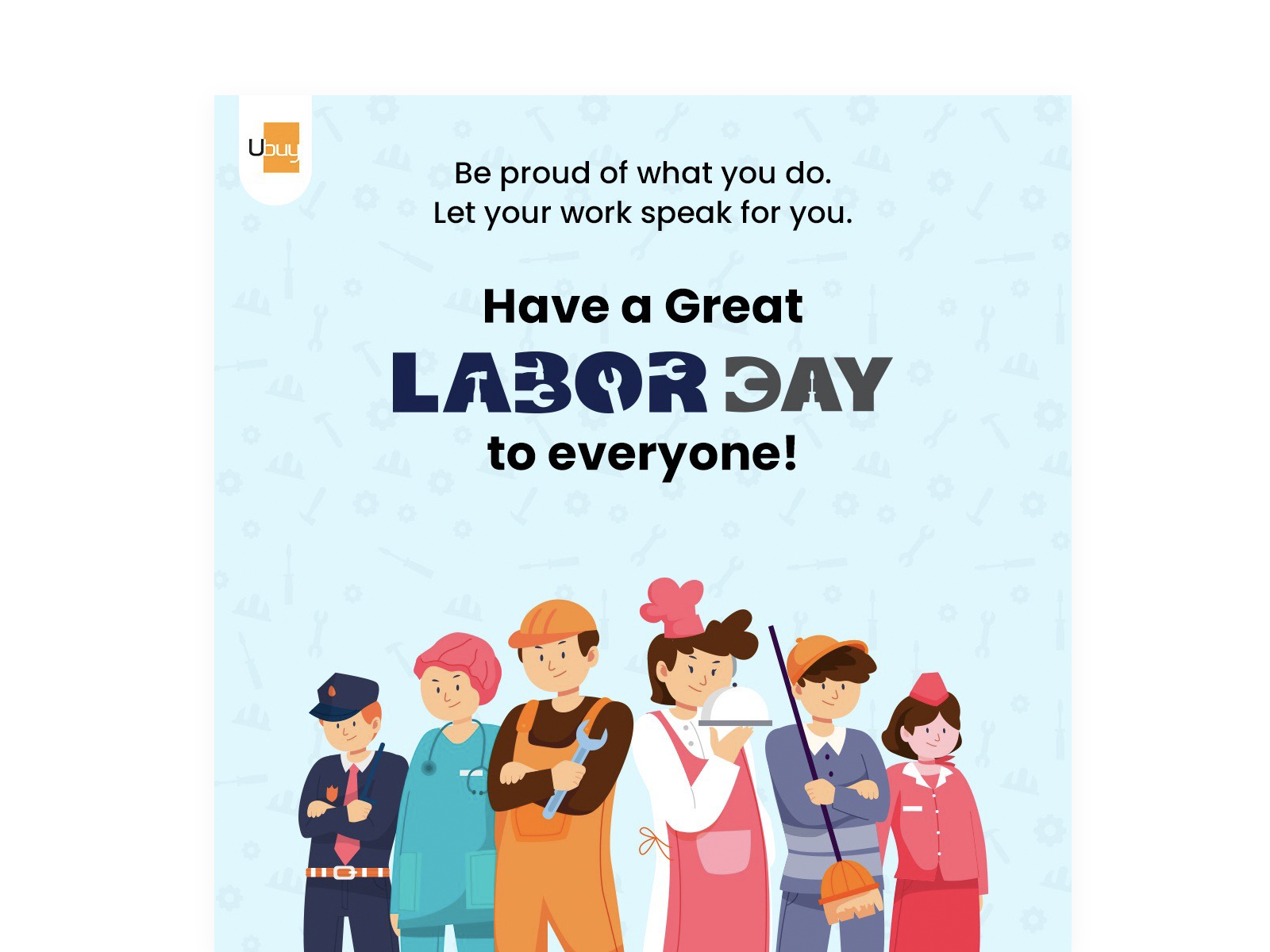
Tag der Arbeit is a day of celebration and remembrance for the labor movement. Different countries and communities have their own unique traditions and ways of commemorating the holiday.
In many countries, Tag der Arbeit is marked by parades and festivals. These events are often organized by trade unions and labor organizations, and they provide a platform for workers to come together and celebrate their achievements.
Parades
Parades are a common feature of Tag der Arbeit celebrations around the world. These parades typically feature floats, marching bands, and workers from various industries. The parades are often used to showcase the strength and unity of the labor movement.
- In Berlin, Germany, the annual Tag der Arbeit parade is one of the largest in the world. The parade attracts hundreds of thousands of people and features floats from trade unions, political parties, and other organizations.
- In London, England, the May Day parade is a traditional event that has been held since the 19th century. The parade starts at Trafalgar Square and winds its way through the streets of central London.
- In New York City, the May Day parade is organized by the New York City Labor Council. The parade starts at Union Square and ends at City Hall.
Festivals
Festivals are another popular way to celebrate Tag der Arbeit. These festivals often feature live music, food, and games. The festivals provide a chance for workers to relax and enjoy themselves with their families and friends.
- In Chicago, Illinois, the May Day Festival is held in Grant Park. The festival features live music, food, and games. The festival is free and open to the public.
- In San Francisco, California, the May Day Festival is held in Dolores Park. The festival features live music, food, and games. The festival is free and open to the public.
- In Seattle, Washington, the May Day Festival is held at the Seattle Center. The festival features live music, food, and games. The festival is free and open to the public.
Other Events
In addition to parades and festivals, there are a number of other events that are often held on Tag der Arbeit. These events include speeches by labor leaders, rallies, and workshops. These events provide a chance for workers to learn about the history of the labor movement and to discuss current issues.
- In Washington, D.C., the AFL-CIO holds an annual May Day rally on the National Mall. The rally features speeches by labor leaders and politicians.
- In New York City, the Workers United union holds an annual May Day workshop. The workshop provides workers with information about their rights and how to organize a union.
- In Los Angeles, California, the May Day Coalition holds an annual May Day march. The march starts at MacArthur Park and ends at City Hall.
Political Significance
Tag der Arbeit, also known as Labour Day or International Workers’ Day, carries immense political significance. It has served as a platform for political ideologies and movements, with its roots in the labour movement and workers’ rights.
Over the years, Tag der Arbeit has been used to promote political agendas and mobilize support for various causes. Political parties, trade unions, and activist groups have utilized this holiday to organize rallies, speeches, and protests, advocating for workers’ rights, social justice, and political change.
Political Speeches and Rallies
Tag der Arbeit has witnessed numerous politically charged speeches and rallies. Leaders and activists have taken to the stage to address pressing issues, inspire workers, and galvanize support for their causes. These speeches often articulate political visions, criticize government policies, and advocate for social and economic reforms.
Protests and Demonstrations
Tag der Arbeit has also been a day for protests and demonstrations. Workers and activists have used this platform to voice their grievances, demand better working conditions, and challenge oppressive regimes. These protests have ranged from peaceful marches to large-scale demonstrations, sometimes leading to confrontations with law enforcement.
Evolution of Political Significance
The political significance of Tag der Arbeit has evolved over time. In its early years, it was primarily focused on workers’ rights and labour issues. However, as society and politics changed, the holiday became a broader platform for political activism and social change.
Political Groups and Tag der Arbeit
Various political groups have utilized Tag der Arbeit to advance their agendas. Left-wing parties and trade unions have traditionally used this holiday to promote workers’ rights, socialism, and social justice. Right-wing groups have also used this platform to advocate for conservative values, free markets, and limited government intervention.
Benefits and Risks of Political Use
Using Tag der Arbeit for political purposes has both potential benefits and risks. On the one hand, it can raise awareness about important issues, mobilize support for political causes, and hold governments accountable. On the other hand, it can lead to political polarization, divisions within the labour movement, and the potential for violence or unrest.
Labor Market Trends
Tag der Arbeit, or Labor Day, has a significant impact on labor market trends, influencing employment rates, wages, and working conditions. Data and statistics reveal noticeable changes in these areas before and after the holiday.
Employment Rates
In the lead-up to Tag der Arbeit, employment rates typically experience a slight increase as businesses prepare for increased consumer demand and staffing needs. However, following the holiday, employment rates often dip as businesses adjust to the post-holiday slowdown.
Wages, Tag der Arbeit
Tag der Arbeit has a positive impact on wages, as many employees receive bonuses, overtime pay, or other wage supplements during the holiday period. These additional earnings can boost overall wage levels, particularly in industries such as retail, hospitality, and transportation.
Working Conditions
Tag der Arbeit also influences working conditions. In many countries, the holiday provides workers with a mandatory day off, allowing them to rest and recharge. Additionally, some businesses implement flexible work arrangements or reduced work hours during the holiday period to accommodate employees’ needs.
International Labor Organization (ILO)
The International Labor Organization (ILO) is a specialized agency of the United Nations that is dedicated to promoting social justice and improving labor conditions worldwide. As part of its mission, the ILO plays a crucial role in promoting Tag der Arbeit (International Workers’ Day) and advocating for the rights of workers everywhere.
The ILO’s efforts to improve labor conditions and protect workers’ rights encompass a wide range of initiatives and programs, including:
Standard-Setting
- Developing and adopting international labor standards, such as conventions and recommendations, that set minimum requirements for working conditions, including wages, hours of work, and safety and health.
- Monitoring the implementation of these standards and providing technical assistance to countries in their efforts to comply with them.
Technical Cooperation
- Providing technical assistance to countries in developing and implementing national labor laws and policies that align with international standards.
- Supporting capacity-building efforts to strengthen labor inspection systems and promote occupational safety and health.
Research and Policy Development
- Conducting research on labor market trends, labor relations, and social protection systems.
- Developing policy recommendations based on research findings to inform decision-making at the national and international levels.
Social Dialogue and Tripartism
- Promoting social dialogue between governments, employers, and workers’ organizations as a means of addressing labor issues and promoting social justice.
- Encouraging tripartism, a system of cooperation between these three parties, as a fundamental principle in the ILO’s work.
Analyze the evolution of Tag der Arbeit celebrations over time.
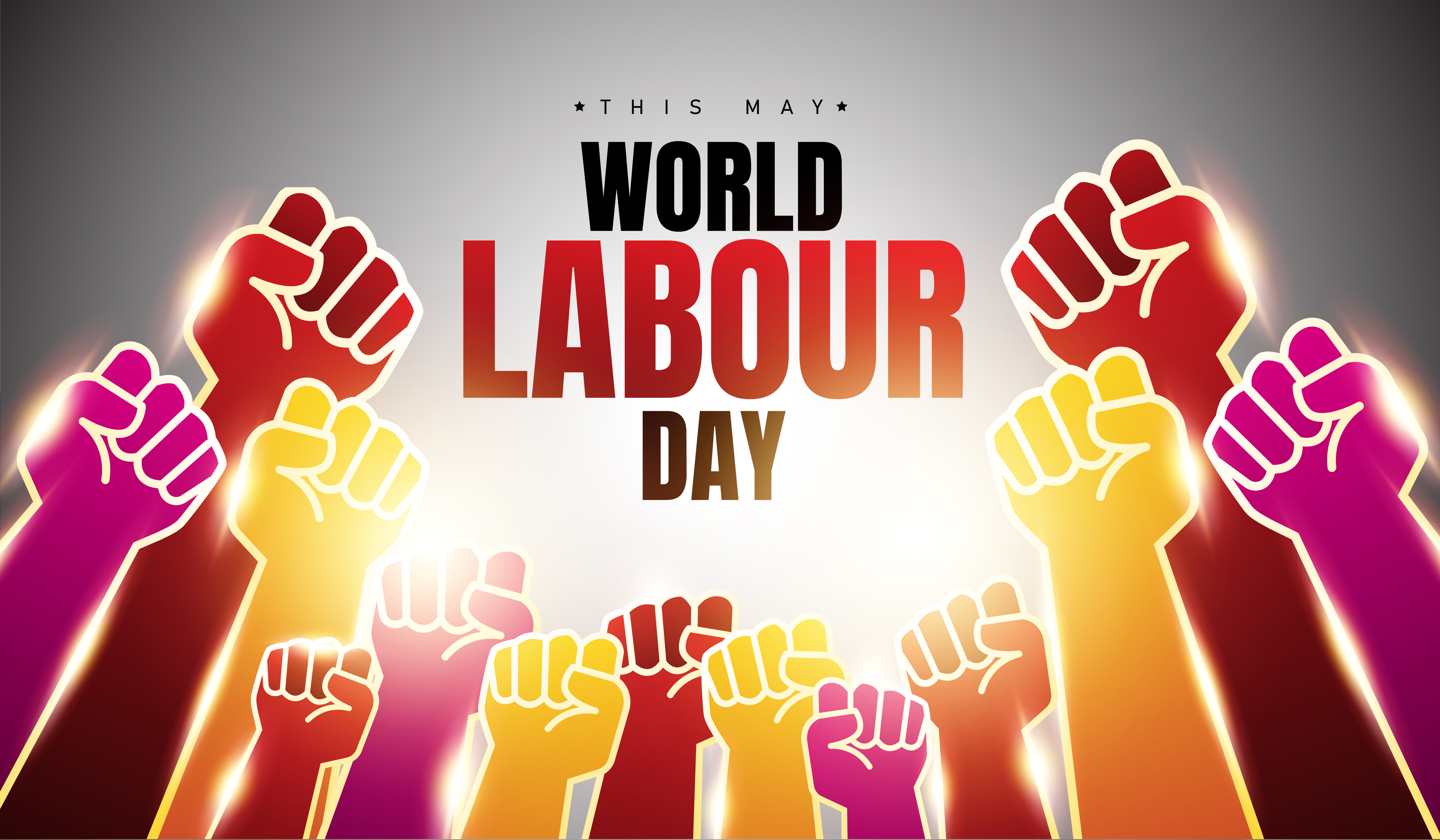
Tag der Arbeit has undergone a significant transformation since its inception, reflecting the changing political, social, and economic landscape over time.
Initially, the holiday was primarily focused on labor rights and workers’ struggles. However, as society evolved and labor conditions improved, the focus shifted towards celebrating the contributions of workers to society and promoting social justice.
Political and social context
The political and social context has played a crucial role in shaping the meaning and significance of Tag der Arbeit. In the early years, the holiday was often used as a platform for political demonstrations and rallies, as workers sought to raise awareness about their demands and advocate for better working conditions.
However, as labor rights became more established and workers gained greater protections, the political aspect of the holiday diminished, and it became more focused on celebrating the achievements of the labor movement and promoting social harmony.
Timeline of key milestones
Here is a timeline of some key milestones in the history of Tag der Arbeit:
- 1889: The first International Workers’ Day is celebrated in Europe and the United States.
- 1890: The Second International Workers’ Congress declares May 1st as an international holiday for workers.
- 1919: Tag der Arbeit is officially recognized as a national holiday in Germany.
- 1933-1945: The Nazi regime bans Tag der Arbeit and replaces it with a celebration of German Labor Front.
- 1949: Tag der Arbeit is reinstated as a national holiday in West Germany.
- 1990: Tag der Arbeit becomes a national holiday in reunified Germany.
Analyze historical documents related to Tag der Arbeit
Tag der Arbeit, also known as International Workers’ Day or Labour Day, has a rich history rooted in the struggles and aspirations of the working class. Historical documents, such as speeches, manifestos, and resolutions, provide valuable insights into the origins, evolution, and significance of this important day.
One of the earliest and most influential documents related to Tag der Arbeit is the Communist Manifesto, published by Karl Marx and Friedrich Engels in 1848. The Manifesto famously proclaimed, “Workers of the world, unite!” and called for the overthrow of capitalism and the establishment of a socialist society.
“The history of all hitherto existing society is the history of class struggles.”
Karl Marx and Friedrich Engels, Communist Manifesto
This passage highlights the central role of class conflict in shaping human history and the need for workers to unite in order to achieve their liberation.
Labor Statistics
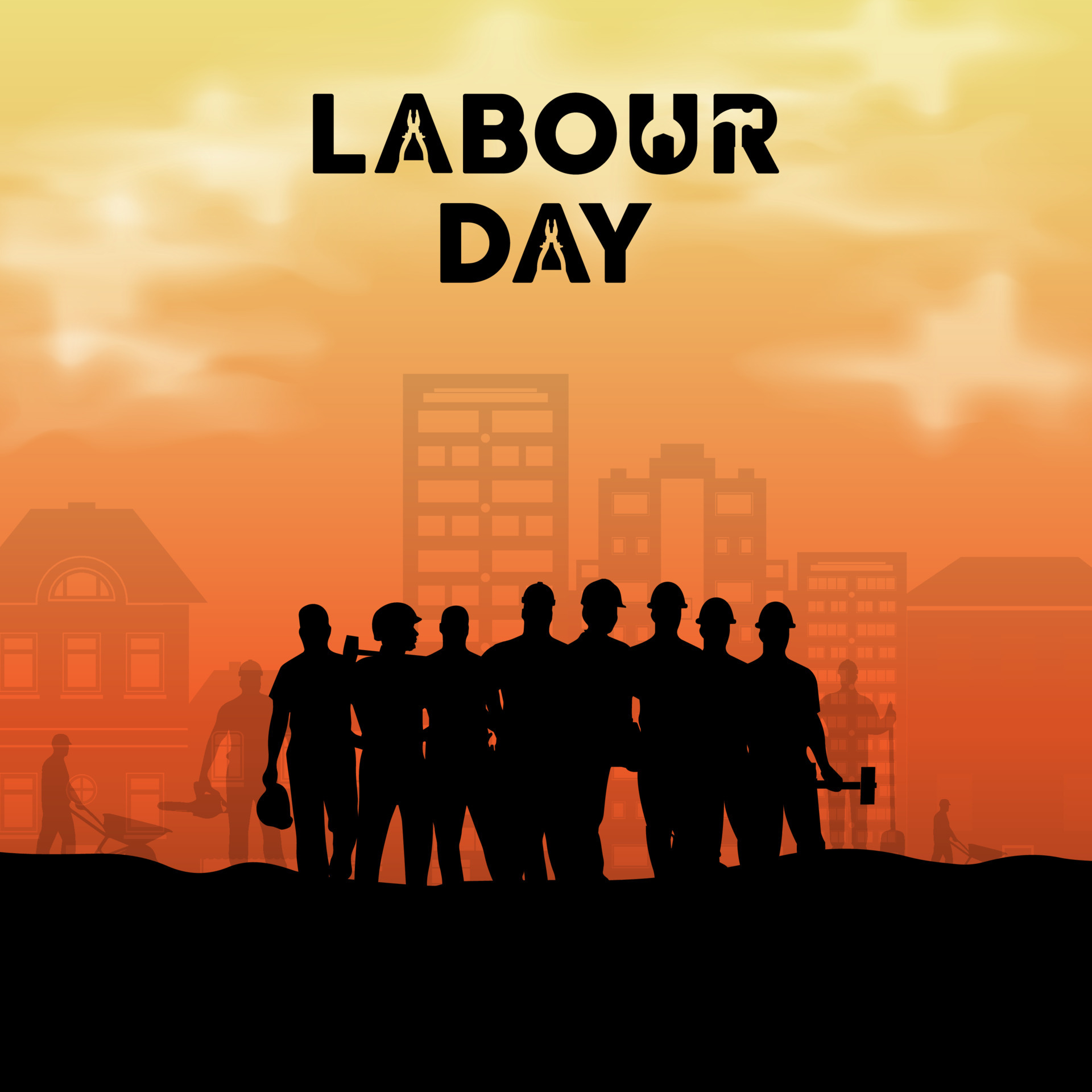
Tag der Arbeit provides a unique opportunity to reflect on the state of labor in Germany and around the world. Labor statistics offer valuable insights into the changing nature of work, the challenges faced by workers, and the progress that has been made in improving working conditions.
Employment Rates
Employment rates in Germany have been steadily increasing in recent years, reaching a record high of 76.2% in 2022. This growth has been driven by a strong economy and a favorable labor market. However, there are still significant disparities in employment rates between different groups of workers. For example, women are more likely to be unemployed than men, and immigrants are more likely to be employed in low-wage jobs.
Wages, Tag der Arbeit
Wages in Germany have also been rising in recent years, but the rate of growth has been slower than the rate of inflation. This means that the real wages of German workers have actually declined slightly in recent years. The median wage in Germany is currently around €3,000 per month. However, there is a wide range of wages, with some workers earning much more than the median and others earning much less.
Working Conditions
Working conditions in Germany are generally good, but there are still some areas for improvement. For example, long working hours are a common problem in Germany, and many workers report feeling stressed and overworked. Additionally, there is still a gender pay gap in Germany, and women are more likely to be employed in part-time jobs than men.
Trends and Patterns
The labor statistics related to Tag der Arbeit reveal several important trends and patterns. First, the employment rate in Germany is increasing, but there are still disparities between different groups of workers. Second, wages are rising, but the rate of growth is slower than the rate of inflation. Third, working conditions in Germany are generally good, but there are still some areas for improvement.
These trends and patterns suggest that there is still room for improvement in the German labor market. By addressing the disparities between different groups of workers, increasing the rate of wage growth, and improving working conditions, Germany can create a more equitable and prosperous labor market for all.
Visual Representation
Visualizing the history and significance of Tag der Arbeit allows us to appreciate its journey and impact. Here’s a captivating visual representation:
Imagine an infographic or timeline adorned with powerful imagery, statistics, and memorable quotes. It begins with the origins of labor movements and the struggle for workers’ rights. As we move through time, we see the milestones achieved, from the establishment of the 8-hour workday to the recognition of collective bargaining.
Key Milestones
- 1886: Haymarket Affair sparks international labor protests.
- 1889: First International Labor Day celebrated in Europe.
- 1894: United States officially recognizes Labor Day as a national holiday.
- 1919: International Labor Organization (ILO) founded.
- 1948: Universal Declaration of Human Rights includes labor rights.
Labor Union Perspectives
Labor unions play a crucial role in shaping Tag der Arbeit celebrations and advocating for workers’ rights. They organize events, rallies, and demonstrations to commemorate the day and raise awareness about labor issues.
Union Involvement in Celebrations
Unions actively participate in organizing Tag der Arbeit celebrations. They collaborate with local governments, community groups, and other organizations to host parades, festivals, and speeches. These events provide a platform for unions to showcase their strength and unity, while also educating the public about the importance of workers’ rights.
Advocacy for Workers’ Rights
Labor unions use Tag der Arbeit as an opportunity to advocate for better working conditions, fair wages, and improved benefits for workers. They lobby governments, negotiate with employers, and mobilize their members to demand change. By raising awareness about labor issues, unions can influence public opinion and put pressure on decision-makers to address workers’ concerns.
Future of Tag der Arbeit
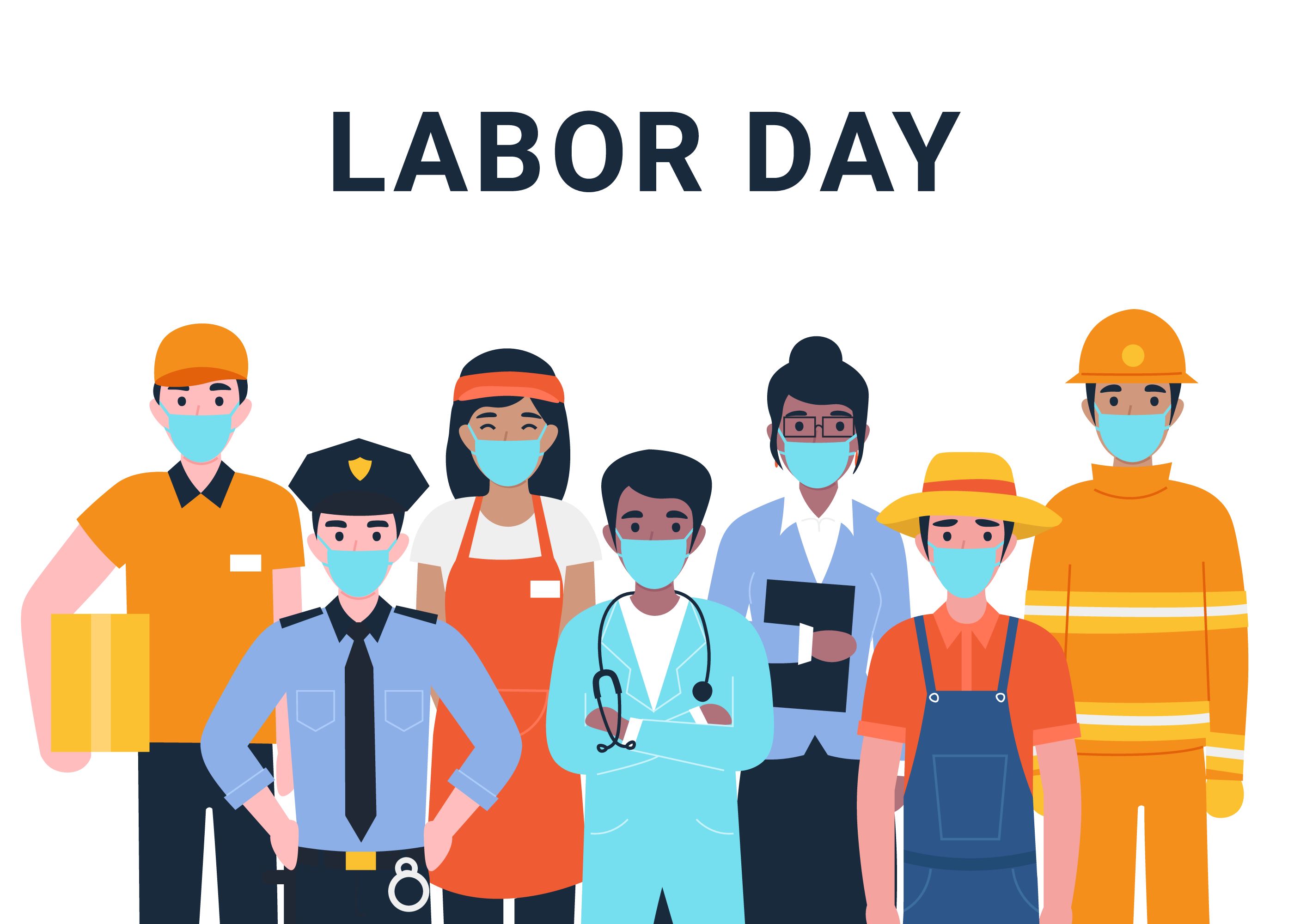
As labor markets and social trends continue to evolve, the future of Tag der Arbeit remains uncertain. However, several key factors are likely to shape its significance and relevance in the years to come.
One major challenge facing Tag der Arbeit is the changing nature of work itself. The rise of automation, globalization, and the gig economy is leading to a decline in traditional blue-collar jobs that have historically been associated with the holiday. This could potentially erode support for Tag der Arbeit among some workers.
Potential Opportunities
Despite these challenges, there are also a number of potential opportunities for Tag der Arbeit in the future. One opportunity lies in the growing importance of social justice and equality issues. As workers become increasingly concerned about issues such as income inequality, job security, and workplace discrimination, Tag der Arbeit could provide a platform for them to voice their concerns and advocate for change.
Key Insights and Predictions
| Key Insight | Prediction |
|---|---|
| Changing nature of work | Decline in traditional blue-collar jobs associated with Tag der Arbeit |
| Growing importance of social justice issues | Tag der Arbeit could become a platform for workers to advocate for change |
| Rise of the gig economy | Increased flexibility and autonomy for workers, but also potential erosion of traditional labor rights |
| Globalization | Increased competition for jobs and downward pressure on wages, but also potential for new opportunities |
Recommendations for Stakeholders
- Labor unions should focus on organizing workers in new and emerging industries.
- Governments should implement policies that support workers in the changing economy, such as providing retraining programs and strengthening labor laws.
- Businesses should recognize the importance of Tag der Arbeit and engage with workers to address their concerns.
- Educators should teach students about the history and significance of Tag der Arbeit.
Personal Reflections
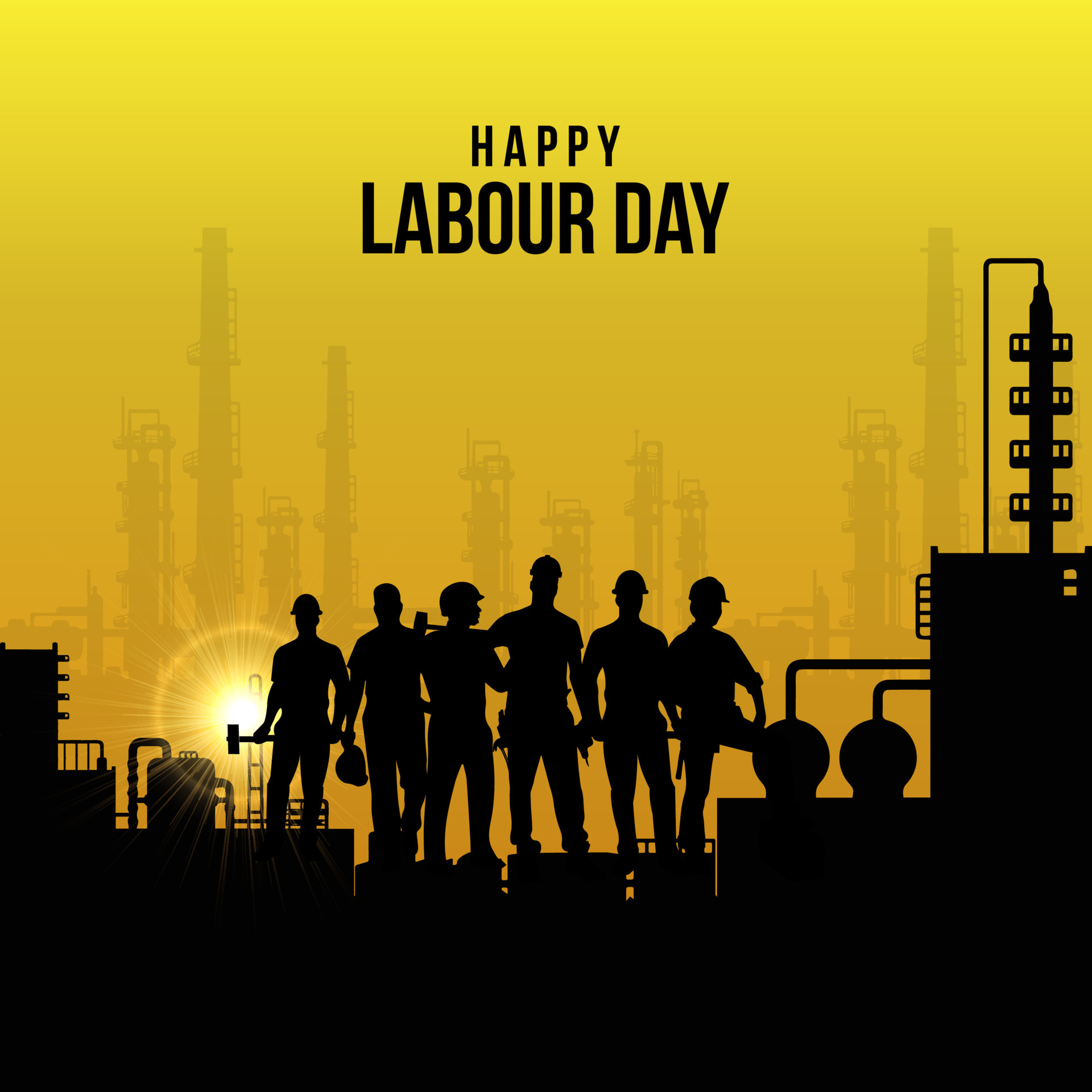
Tag der Arbeit holds immense personal significance for me, as it serves as a stark reminder of the arduous struggles and sacrifices made by countless laborers throughout history. It is a day to reflect upon the fundamental rights and social justice that many of us often take for granted.
Growing up, I was fortunate to witness firsthand the unwavering dedication of my parents, both of whom worked tirelessly to provide for our family. Their unwavering commitment instilled in me a deep appreciation for the value of hard work and the dignity of labor.
Labor Rights and Social Justice
Tag der Arbeit has profoundly shaped my understanding of labor rights and social justice. It has made me realize that these rights are not simply abstract concepts but rather essential pillars of a just and equitable society.
The holiday serves as a powerful reminder of the importance of workers’ rights, including the right to fair wages, safe working conditions, and collective bargaining. It also highlights the ongoing struggle for social justice, particularly for marginalized and vulnerable workers.
Closing Notes
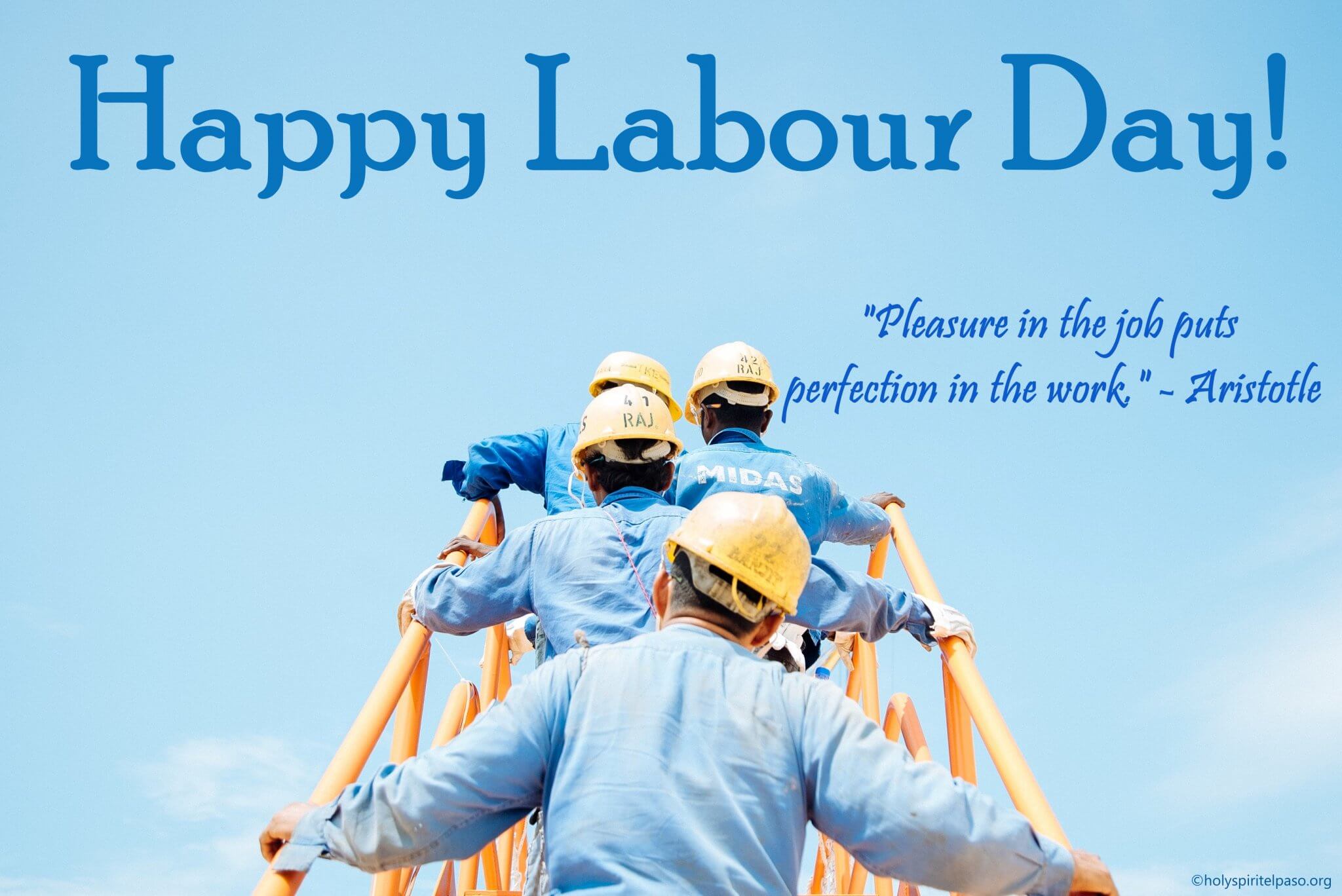
Tag der Arbeit stands as a testament to the power of collective action and the unwavering spirit of those who toil to build a better world. As we commemorate this day, let us not only honor the past but also embrace the challenges and opportunities that lie ahead. Together, we can continue to build upon the legacy of Tag der Arbeit, ensuring that the rights and well-being of workers remain at the forefront of our collective conscience.
Questions and Answers
When is Tag der Arbeit celebrated?
Tag der Arbeit is celebrated on May 1st in most countries.
What is the historical significance of Tag der Arbeit?
Tag der Arbeit commemorates the Haymarket Affair of 1886 in Chicago, which was a major turning point in the American labor movement.
How is Tag der Arbeit celebrated around the world?
Tag der Arbeit is celebrated with parades, festivals, and speeches in many countries.